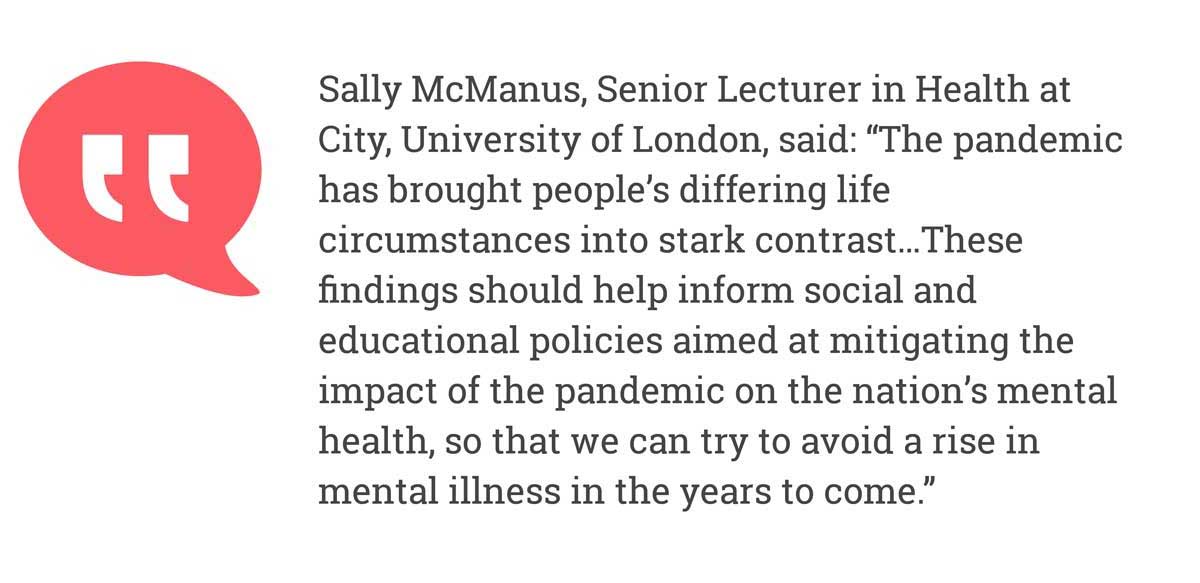 Mental Health Problems Increase – Is The Lockdown To Blame?
Mental Health Problems Increase – Is The Lockdown To Blame?15 Oct 2020 ● Matt Farrah, Nurses.co.uk Founder
Mental Health Problems Increase – Is The Lockdown To Blame?
 Is the lockdown solely to blame for increased mental health issues in the UK?
Is the lockdown solely to blame for increased mental health issues in the UK?Can we fairly put the blame for increased mental health problems on the lockdown? Or are several factors, such as bereavement, job & financial insecurity and social isolation more likely to be the causes?
A study of UK households published in The Lancet Psychiatry suggests that mental health declined substantially after the first month of COVID-19 lockdown.
During April 2020, the percentage of people reporting ‘potentially clinically significant’ levels of mental distress rose from a pre-pandemic level 18.9% to 27.3%.
Does this increase point to a mental health crisis to come, as services restart after being suspended during the height of coronavirus demand on NHS capacity? Comment Like ❤️ Reply below.
Mental healthcare providers have predicted that infection control and social-distancing measures will mean they have an estimated 10-30% less capacity than normal.
Ordinarily, mental health disorders account for almost a quarter of the total burden of ill health in the UK.At the peak of the pandemic however, referrals to mental health services dropped 30%.
As coronavirus infection rates are comparatively low, do you think the government and NHS should prioritise mental health care as services come back online?
The Royal College of Psychiatrists has stated that people with no history of mental illness have been developing psychological problems as a result of the lockdown.
In addition, their survey, conducted in May, revealed that 45% of psychiatrists said that they had seen a fall in the number of patients attending routine appointments during the pandemic.
Claire Murdoch, NHS England’s national clinical director for mental health, told the Commons health and social care committee in May 2020 that demand for mental healthcare would increase “significantly” once the lockdown ended.
Encouragingly though, UCL’s COVID-19 study of 90,000 adults’ mental health found that levels of anxiety and depression fell in early June as lockdown measures were eased.
Do you think the psychological impact of the lockdown will be as bad as predicted?
With the expected backlogs for all types of treatment as a result of the prioritisation of coronavirus cases, do you think the NHS will have, or be given the resources necessary to cope with extra demand for mental health services on top of everything else?
As you might expect, mental distress was more common among people living in low income households.

Should the government take action to ease lockdown restrictions as much as possible, to give people as great a chance as possible to recover before the tapering and shutdown of the furlough scheme brings about the mass redundancies that so many expect?
If the furlough scheme isn’t extended, and there are mass redundancies throughout October, do you think this is more likely that the any other factor to be the cause of mental ill-health?
Please let us know what you think in the comments. Also, if you've enjoyed reading the article, give it a like!


